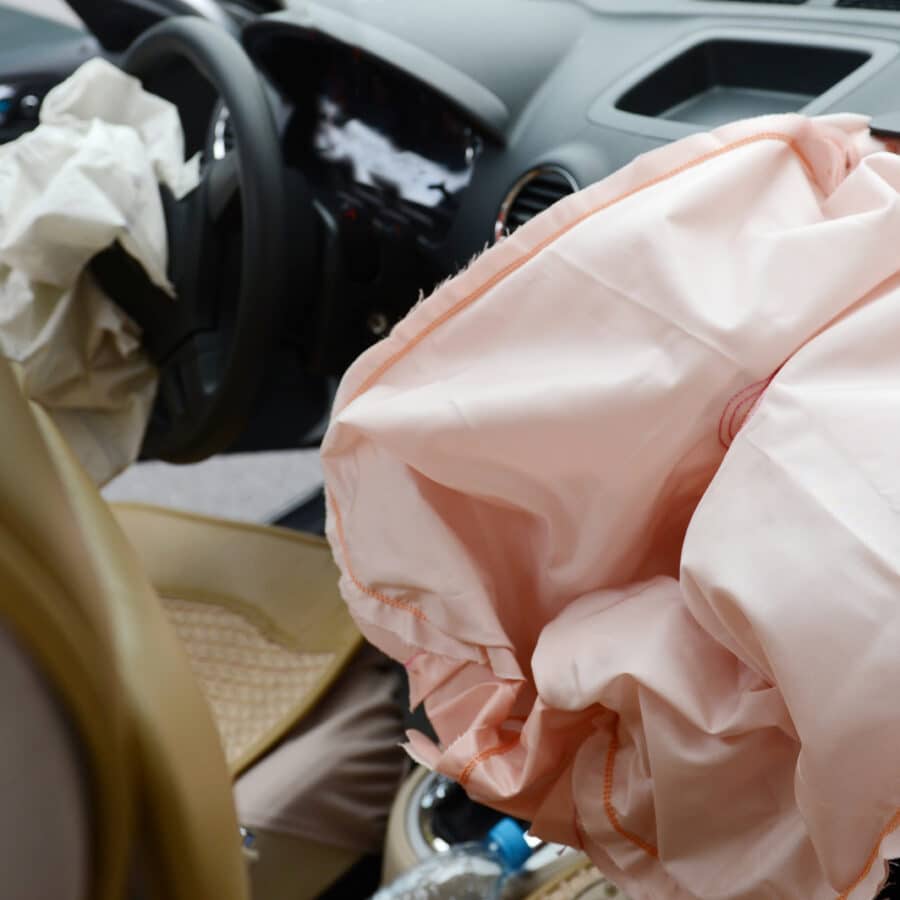The airbag is one of the most important safety features in a vehicle. When an airbag doesn’t function as intended, its effects could be potentially dangerous. In January, Toyota issued a recall of nearly 752,000 Corolla and Corolla Matrix models due to a defective IC chip in the airbag’s control unit. The chip could have been distracted by other electrical devices in the car, and could have potentially led to an unexpected deployment of the airbags. This week, USA Today reports that Hyundai is recalling 5,200 2012-2013 Azera models for a possible defect in the airbag system.
According to Hyundai, the defect could affect “the ability of the sensor to properly distinguish when the front passenger airbag should be deactivated.” As a result, an airbag could inflate when a smaller-sized person, such as a child, is in the passenger seat and cause injury or death. Typically, the front seats of vehicles use sensors that are able to differentiate between smaller, lighter passengers and regular-sized adults. The full force of an airbag deployment could be harmful to a smaller-sized person, so airbags usually inflate more gently, or not at all, in the event of a crash.
Autoliv Korea, one of Hyundai’s suppliers, informed the automaker last November that “a change in fabric covering the sensor mat within the seat could cause the system to misread the sensor and inflate the airbag when it shouldn’t,” according to USA Today. The automaker also stated that it received five warranty claims as a result of the airbag warning lights in the models turning on for no reason from May through November 2012.
The Azera models which are the subject of the recall were manufactured between May 22, 2012 and November 23, 2012. Auto World News reports that Hyundai stated that it has fixed the problem in newer models. Hyundai plans to begin notifying owners of the recall in the third quarter of this year. Hyundai dealers will recalibrate the airbag system on the affected vehicles.


